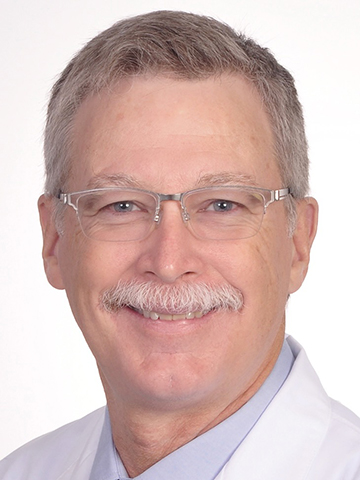MHA Alum Dirk Alander Follows ‘Happy Feet’ To New Opportunities
For Dirk Alander, MD, MHA, FACS (MHA ‘17) it’s never too late to make a change, find a new career path, or explore a new skill.
Alander currently fulfills the role of Medical Officer in the Office of Orthopedic Devices, Division of Spinal Devices for the Center for Devices and Radiologic Health at the Food and Drug Administration (FDA).
Over the past 40 or more years, Alander has followed his ‘happy feet’ across the healthcare landscape of administration, clinics, surgery and teaching.

No matter what path he’s taken, the signs always point back to orthopedics.
“I just really enjoy exploring, gaining new knowledge and learning new skills. I just have a good time keeping in motion,” he said. “I think that's why I say I come to everything a little bit late. I'm about 10 years behind everybody else because I have lots of interests that compete for my attention.”
Alander has woven teaching throughout the timeline of his career as he’s held teaching positions at multiple medical schools. Among those institutions the more recent positions included working as a Professor of Orthopedic Surgery at Saint Louis University and Geisinger Commonwealth School of Medicine. He also was Chief Quality in the Department of Orthopedic Surgery and the Musculoskeletal Institute at Geisinger Health System, where he last worked clinically as orthopedic spine surgeon.
“There's no age limit to searching out new opportunities and learning,” he said.
“I don’t operate anymore but I continue to be actively involved with orthopedics at the FDA.”
Alander explained that while his path to his current position may have taken him across many arenas, wherever he ended up working he wanted to make a positive impact no matter what he was doing.
After about 20+ years teaching, he was searching for a new challenge. That’s when Saint Louis University became the conduit for Alander to jump into the pool of health administration.
“I had clinical experience, but I didn't feel I had enough of the academic background that I wanted, and that's why I chose to start the MHA program. I came to that decision after I'd been in many different practice situations over many years. Despite making a “late” decision to pursue a MHA at Saint Louis University, my clinical experiences allowed me gain valuable insights during the MHA program that I do not believe that I would have appreciated early on in my career.”
As Alander continues to navigate through his career and explore new opportunities, he sees the innovations and positive ways that new students or new professionals can develop.
He also explains the value of education lies in how fruitful trying new avenues and
experiences can be for one’s career and also in providing an important way to continue
to improve oneself over the years.
“As physicians, by and large, we're always trying to learn, looking for answers and finding new ways to continue to improve ourselves and our patient care.” There are so many ways to expand your knowledge base and care for people. “You can jump really hard into the research; you can pursue the leading edge of clinical medicine or pursue administration as one aspect of population health.
“Really it comes down to your interests and how you put your knowledge to work in the healthcare arena. For me, I think the advantage of structured education in health administration was to expose the areas that I was lacking a firm knowledge base, reinforce that what I knew was working well and just experiencing the joy of learning new skills.”
Alander also expanded on the idea that understanding the systems of health allows an administrator to understand the patient more. He found it rewarding to work with his classmates, providing physician perspectives while gaining viewpoints from those with backgrounds outside of clinical medicine.
Through every career hurdle or advancement, across multiple landscapes, the constant for Dr Alander has been trying to make a positive impact on people. “To be effective in the practice of medicine we have to understand and practice the business of medicine all the while realizing that the bottom line really comes down to meeting the needs of our patients in the best way possible.”
College for Public Health and Social Justice
The Saint Louis University College for Public Health and Social Justice is the only academic unit of its kind, studying social, environmental and physical influences that together determine the health and well-being of people and communities. It also is the only accredited school or college of public health among nearly 250 Catholic institutions of higher education in the United States. Guided by a mission of social justice and focus on finding innovative and collaborative solutions for complex health problems, the college offers nationally recognized programs in public health and health administration.